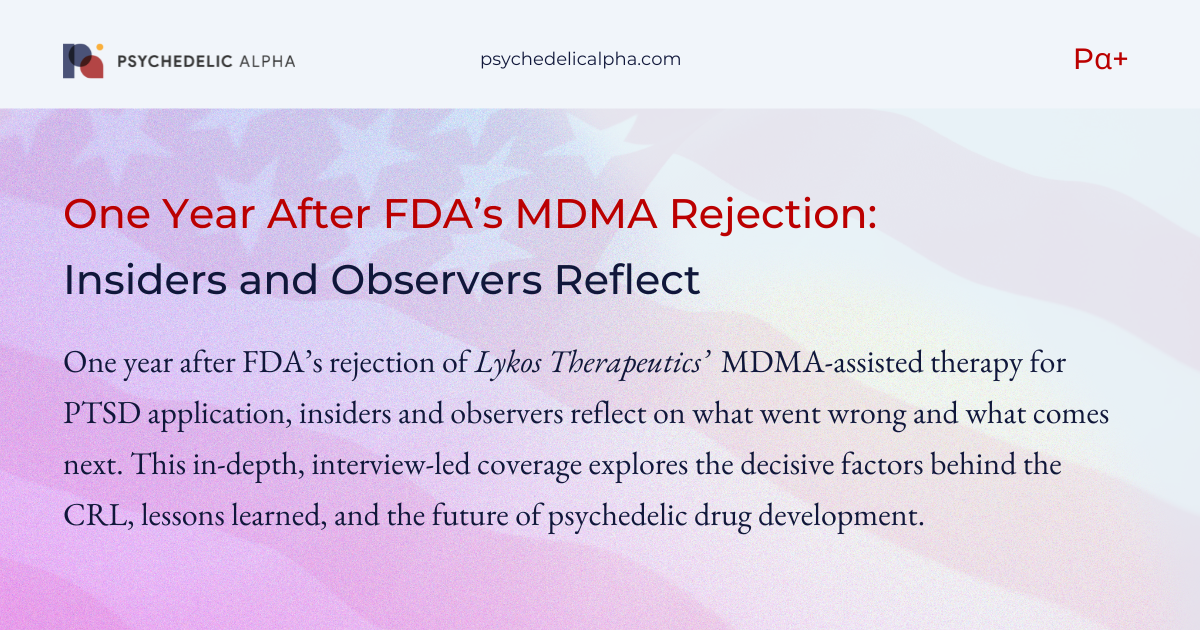As we covered insiders’ reactions, at some point it didn’t seem helpful to continue rehashing the same old debates, especially as a few entrenched schools of thought emerged, which included:
- ‘Psymposia torpedoed it’
- ‘Big pharma sunk it’
- ‘Lykos fumbled it’
While we have attempted to push past these tired debates and adopt a more forward-looking stance in our reporting, they still loom large in the field.
In March, journalists Andrew Jacobs and Rachel Nuwer penned a New York Times piece that said Psymposia, which it described as “a leftist activist group”, ‘torpedoed’ MDMA’s chances of approval, reigniting a heated discussion surrounding the loosely organised nonprofit.
At Psychedelic Science 2025 in Denver earlier this summer, the blame game again resurfaced. Notably, panellists at a pre-conference business workshop titled Founder Narratives and Finding Capital in the Psychedelic Industry discussed the various factors that led to the NDA’s downfall.
Then, just two weeks ago, journalist John Semley wrote a piece for Wired that recounted last year’s saga once more, in an article that was at least partially a profile of Psymposia.
So, the debates—and animosity, to some extent—are alive and well. But as we pass the one-year anniversary of FDA’s CRL, we decided to do the rounds and speak to various people close to the matter.
We asked those individuals whether they believe, with the benefit of a year’s hindsight, the agency’s decision was surprising and/or justified, and what Lykos could have done differently. True to a more forward-looking orientation, we also asked them about the path ahead for Lykos, and the future of the field more generally.
In this lengthy, interview-led deep dive, you will hear from MAPS founder Rick Doblin, a former Lykos executive familiar with the contents of the CRL and the company’s strategy, other company insiders, members of that apparently fateful FDA Advisory Committee (AdComm), critics of the program, investigators and academics, and investors…


